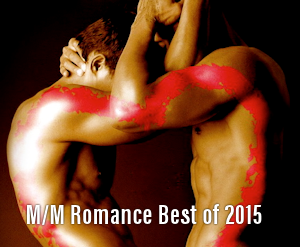 Title: Always With Us
Title: Always With Us
Author: Morgan Cheshire
Cover Artist: ?
Publisher: Manifold Press
Buy Links: Amazon ; Publisher
Genre: Historical
Length: Novel (320 pages/77K words)
Rating: 2 stars out of 5
A Guest Review by LenaLena
Review Summary: Neither fish nor fowl.
Blurb
Liverpool, 1896: Wealthy Harrison Calderwood has never given much thought to the poor of the bustling city until he accidentally runs into firebrand Daniel Harper. Through Daniel’s eyes he begins to see how much more could be done to improve the lot of the working people, and at the same time he begins to feel a very strong attraction towards Daniel himself. However this is the Victorian era, Daniel is believed to be a troublemaker, and Harrison has a position to maintain and a family who are expecting him to marry a well-to-do young woman and settle down to a conventional life …
Review
I was going to start out this review with saying this wasn’t really a romance novel, but more of a historical novel with gay main characters, but then I realized that isn’t really true. Or at least, if it is meant as the latter, that it fails at that too.
If this was meant as a historical novel set in the middle of the emergence of socialism in late 19th century Liverpool, the elements in the book that form the building blocks of the setting would not have disappeared as soon as they had outlived their use for the love story. Daniel would have led more than one strike. He would have been swept up in that movement. There would have been an actual standoff between the socialist ideals as embodied by Daniel and capitalist ones as embodied by Todd. The shelter would not have faded to the background as soon as it was no longer needed as the primary meeting place for Daniel and Harrison. Alexandra would not have fallen into another man’s arms immediately after expressing an interest in Daniel. Instead, all the external elements are just there, and only there, as long as they help the love story along.
On the other hand, there are way too many elaborate descriptions of insignificant events that are only there to set the time and place. Other authors may not have needed multiple pages describing a pantomime (or a beach, or a zoo, or a train ride), but would be able to use a few sentences to paint the picture and not leave the reader wondering why on earth we need to have the entire pantomime performance described for no discernible reason. A better story teller would not have dragged all the period details into the story but would have focused on a few, such as the work at the shelter and the contrast between rich and poor and would have built a much stronger story around those few. ‘Look at all the research!’ isn’t necessarily the basis for a good story.
So it’s not a historical novel, but it really isn’t a romance either. I’m sure there are other people out there who disagree with me and who find this love story utterly charming in its restraint. The restraint matches the time period well, of course, and I actually liked the way the communication between the main characters was so very stiff upper lip. That seemed authentic and was therefore an acceptable form of the ‘miscommunication through lack of communication’ trope that plagues so many romance novels. Unfortunately the inner life of the main characters was also very stiff upper lip and that really made the whole thing sedate and bland and unexciting to me. Sentences like ”The idea of two men loving each other wasn’t distasteful to him.” don’t exactly brim with passion and that is pretty much as passionate as it gets. Yes, there is one sex scene and it has phrases like ”They stood close together for a moment, learning how to be this way, but it was not long before a more urgent form of desire began to make its presence felt between them.” Fade to black after a few kisses and ‘explorations’. I don’t mind fade to black, really, if I can feel the emotions that have taken us to that point, but this book didn’t make me feel much at all.
My 89 year old Southern Belle mother in law might like this. If it had featured a heterosexual couple, of course. And if it had properly vilified the socialists.
















I enjoyed this story. At times, though, it felt as if I was missing some back story, and I wondered if it was a sequel. I think that was the author’s style, though, perhaps she preferred not to give too much exposition. I was surprised at Harrison’s mother’s complete acceptance and encouragement of his homosexuality. She even persuaded his uptight older brother to condone the relationship between Harrison and Daniel, which I found slightly unbelievable, given the era the story was set. I gave it 3 stars.
Yes, Harrison’s mother seemed very unrealistic in her acceptance. And Todd’s about face seemed odd too.